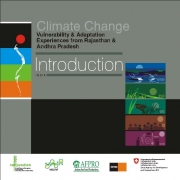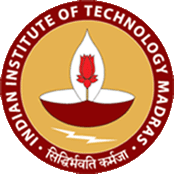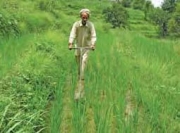/regions/andhra-pradesh
Andhra Pradesh
SRI - Less seeds, water , fertilisers lead to greater yields
Posted on 18 Jan, 2011 11:21 PMBHUBANESWAR, India, Dec 29, 2010 (IPS) - When French Jesuit priest and passionate agriculturist Henri de Laulanie developed the System of Rice Intensification (SRI) method of cultivation for Madagascar’s poor farmers in the 1980s, he probably had no idea that millions of farmers elsewhere in the world would one day benefit from it as well.
Potential of the System of Rice Intensification for systemic improvement in rice production and water use - The case of Andhra Pradesh
Posted on 13 Jan, 2011 03:54 PMThis paper discusses the advantages of system of rice intensification over normal paddy cultivation. The researcher compare the performance of System of Rice Intensification (SRI) and normal rice fields in two mandals (subdistricts) of Mahabubnagar district of Andhra Pradesh. The yields from these two systems and agronomics are compared.
The need to find less water intensive methods of agriculture become important as there is a reduction in the scope of enhancing irrigation base for increase in food production. It is in this context that this research has been carried out.
International Certification Programme on Management of Public Private Partnerships in the Urban Water and Sanitation Sector, ASCI, 17th Jan - 21st Jan, Hyderabad
Posted on 12 Jan, 2011 04:12 PMOrganizer: The Administrative Staff College of India (ASCI)
Venue: ASCI, Hyderabad
Conservation of urban lakes as potential sources of freshwater - Paper presented at the National Seminar on Water and Culture (2007)
Posted on 09 Jan, 2011 11:52 PMThe author sees the need for the conservation, maintenance and management of these ancient water bodies for the supply of water to cities. The author suggests that there is need to integrate traditional wisdom with modern water resource management.
Climate change: Vulnerability and adaptation experiences from Rajasthan and Andhra Pradesh – A report by SDC
Posted on 05 Jan, 2011 06:44 PM This document discusses the process oriented programme of Swiss Agency for Development and Cooperation (SDC) on Vulnerability Assessment (V&A) and Enhancing Adaptive Capacity to Climate Change initiated in the semi-arid regions of India. The aims of this programme include strengthening the resilience of local communities to conditions of unfavourable weather, like adverse alterations in temperature and precipitation leading to the more frequent occurrence of drought and to use the experiences for policy development for climate change adaptation measures at various levels.
This document discusses the process oriented programme of Swiss Agency for Development and Cooperation (SDC) on Vulnerability Assessment (V&A) and Enhancing Adaptive Capacity to Climate Change initiated in the semi-arid regions of India. The aims of this programme include strengthening the resilience of local communities to conditions of unfavourable weather, like adverse alterations in temperature and precipitation leading to the more frequent occurrence of drought and to use the experiences for policy development for climate change adaptation measures at various levels.
Over 60 per cent of the cultivated area in India is rainfed & unfavorable and uncertain rainfall patterns will seriously affect the food, drinking water and livelihood security of millions of children, women and men. Since the initiation of this project, the emphasis on proactive research on adaptation mechanisms has increased at the national level.
The present decade may mark the beginning of a new climate era, characterized by extreme and often unpredictable weather conditions and rise in sea levels. The greatest casualty of climate change will be food, water and livelihood security.
The Dam Safety Bill (2010) – Ministry of Water Resources
Posted on 27 Dec, 2010 11:00 AMThe Dam Safety bill, 2010 introduced in the Lok Sabha in August 2010 and approved by the cabinet earlier this year was referred to the Standing Committee on Water Resources, which was scheduled to submit its report within three months. The bill which is still pending seeks to provide for the surveillance, inspection and operation of all dams of certain parameters to ensure their safe functioning.
Saving rice - Ambitious plans to increase productivity
Posted on 24 Dec, 2010 10:13 AMEnormous funds are being poured into research aimed at improving seed varieties, with a heavy focus on developing hybrid rice. Is it the right option for millions of small rice farmers who are already battling high input costs and increasingly unpredictable weather? Or does part of the solution lie in efficient methods of cultivation that will cut down water use and improve yield?
Training program on open source 'Gram Panchayat QGIS', IIT Madras, Hyderabad
Posted on 18 Dec, 2010 11:37 AM Organizer: Indian Institute of Technology Madras (IIT)
Organizer: Indian Institute of Technology Madras (IIT)
Heavy rainfall, floods and drought affect life, agriculture and economy of the country - News Roundup (8-15 December 2010)
Posted on 17 Dec, 2010 12:22 AMReports over the last week indicate heavy rains and loss of lives and property in the state of Tamil Nadu, which has faced the maximum brunt of the rains followed by Kerala, Andhra Pradesh and some parts of Sikkim and Himachal Pradesh. Reports also indicate that there have been massive losses to agricultural produce due to heavy rains in parts of Tamil Nadu, Andhra Pradesh and because of droughts in the state of Orissa. At the same time, reports also indicate good news that there has been a rise in the water levels in the country and of attempts being made in different parts of the country to cope with floods and excessive rains in the future.
Rainfall
Tamil Nadu
- Tamil Nadu: The north-east monsoon, 50 per cent in excess in the State, claims over 200 lives and destroys crops and infrastructure
- After the deluge: Chennai has received 71 cm of rain during this year's northeast monsoon, leaving the roads in the Chennai Metropolitan Area in shambles
- The rain-hit north and south Chennai, Tamil Nadu get some respite even as several areas, including Velachery and Taramani, remained under a sheet of water, affecting hundreds of people
- Rain stops, but no end to woes for people from Chennai, Tamil Nadu
- Rain pours non-stop misery in Tamil Nadu
- 2,000 people rescued from low-lying areas along river Tamirabarani, in Kanyakumari district
- Torrential rain kills over 200 in Tamil Nadu
- 70 % excess rainfall in Cuddalore district, Tamil Nadu
Farmers experiences on System of Rice Intensification in India – A report by ICRISAT-WWF
Posted on 14 Dec, 2010 08:29 PM This report on farmers’ experiences on System of Rice Intensification (SRI) in India by ICRISAT and WWF is an effort to compile the experiences of those farmers who pioneered the SRI method in various regions. They experimented in their own way, articulating their point of view on the method.
This report on farmers’ experiences on System of Rice Intensification (SRI) in India by ICRISAT and WWF is an effort to compile the experiences of those farmers who pioneered the SRI method in various regions. They experimented in their own way, articulating their point of view on the method.
The SRI is a national phenomenon in India and rice-cultivating farmers, particularly those who have less than one hectare of land, have experimented, refined, adopted and are promoting SRI. It is their hard work and trust that has spread this unknown method into all rice-growing states. Out of 564 rice-growing districts in India, SRI is being practiced by the farmers in about 216 districts.